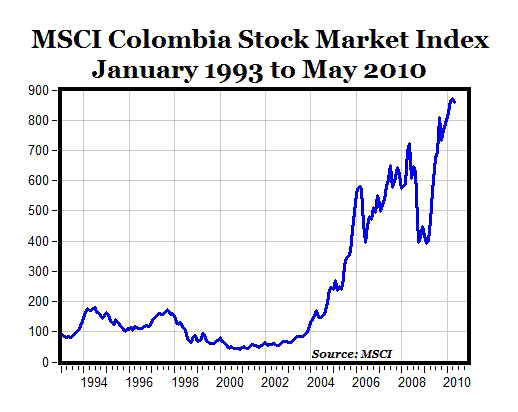In President Obama’s State of the Union address in January, he outlined his plan to help U.S. businesses double exports over the next five years and in the process add two million American jobs. Further, Obama warned that “If America sits on the sidelines while other nations sign trade deals, we will lose the chance to create jobs on our shores.”
Well, that exactly what’s happening , but it’s not the good part about doubling exports and adding U.S. jobs, it’s the bad part about the U.S. sitting on the sidelines while Colombia and Panama negotiate free trade agreements (FTAs) with the European Union and Canada, and while Korea finalizes an FTA with the European Union. Meanwhile, America’s FTAs with Colombia, South Korea and Panama, all signed back in 2007, are now languishing into their fourth year awaiting Congressional approval.
What makes those delays especially inexcusable is that the Colombian and Panama FTAs have support from 1,200 American companies, associations, farm and ranch groups, and chambers of commerce, as well as support from the editorial boards of almost every major U.S. newspaper including the Wall Street Journal, L.A. Times, Washington Post, Miami Herald, Chicago Tribune, Detroit News, and even the New York Times, which wrote in 2008, “We don’t say it all that often, but President Bush is right: Congress should pass the Colombian free-trade agreement now. We believe that the trade pact would be good for America’s economy and workers.”
Adding to the inexcusability is the fact that the main beneficiaries of the stalled free trade agreements with Colombia and Panama would actually be American companies and workers, because the agreements would open up those markets to U.S. exports by eliminating the stiff tariffs currently imposed on our products (while 90 percent of Colombian and Panamanian imports currently enter the U.S. duty-free).
And what makes the situation worse yet is that Colombia’s economy and stock market are booming like never before. After stagnating for a decade between 1993-2003, Colombian stocks have increased more than eight-fold since early 2004, and have more than doubled over the last two years (see chart below). The failure to pass the Colombian FTA means that U.S. exporters are missing out on a golden opportunity to gain from Colombia’s thriving economy.

With incredible export opportunities awaiting U.S. manufacturers in booming, emerging markets like Colombia, with the huge potential to create much-needed jobs for America’s workers, and with universal support from almost every sector of the economy, what could possibly be holding up the FTAs with Panama, Colombia and Korea?
Apparently just one group: U.S. labor unions, with the support of their Democratic enablers in the White House and Congress. Recent polls show that public support of unions is at a 72-year low, so it’s especially puzzling that this one group can still exercise such political power to withhold thousands of jobs from fellow Americans by stopping the FTAs, even during and following such a severe economic downturn when job creation is so critical. Despite his political rhetoric, President Obama seems perfectly content so far to sit patiently on the sidelines along with his union supporters and watch Panama, Colombia and Korea sign free trade deals with the European Union and Candada, while preventing our FTAs with these countries from passing, and in the process watch thousands of potential U.S. jobs evaporate. It’s inexcusable.
Cross-posted on the Enterprise Blog.
- Bulenox: Get 45% to 91% OFF ... Use Discount Code: UNO
- Risk Our Money Not Yours | Get 50% to 90% OFF ... Use Discount Code: MMBVBKSM
Disclaimer: This page contains affiliate links. If you choose to make a purchase after clicking a link, we may receive a commission at no additional cost to you. Thank you for your support!


Leave a Reply